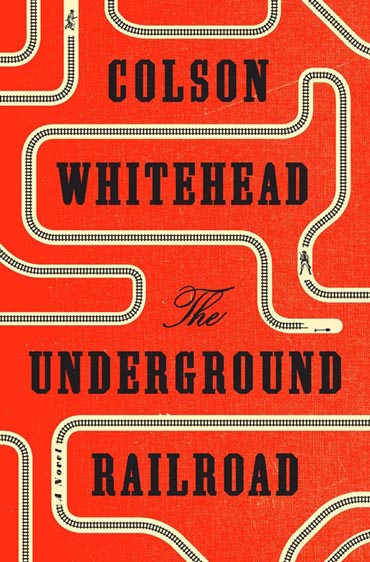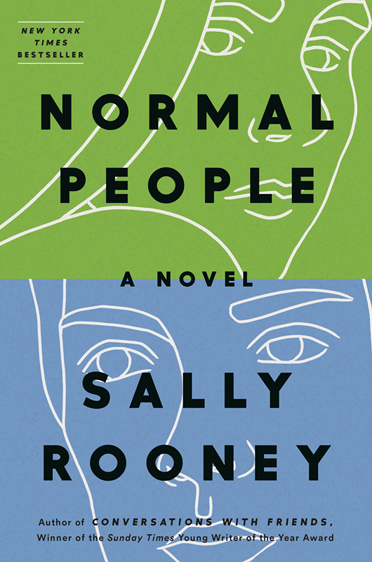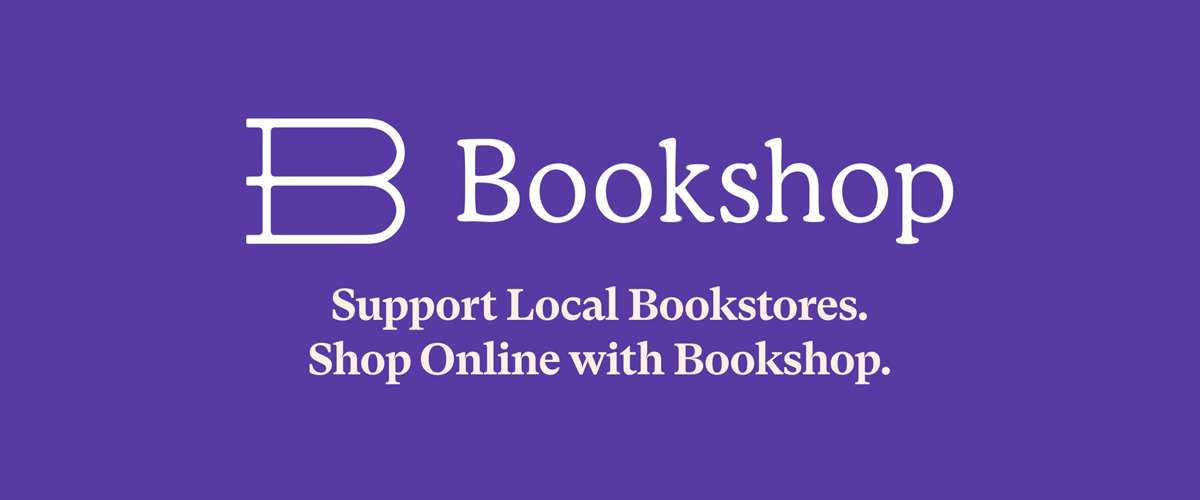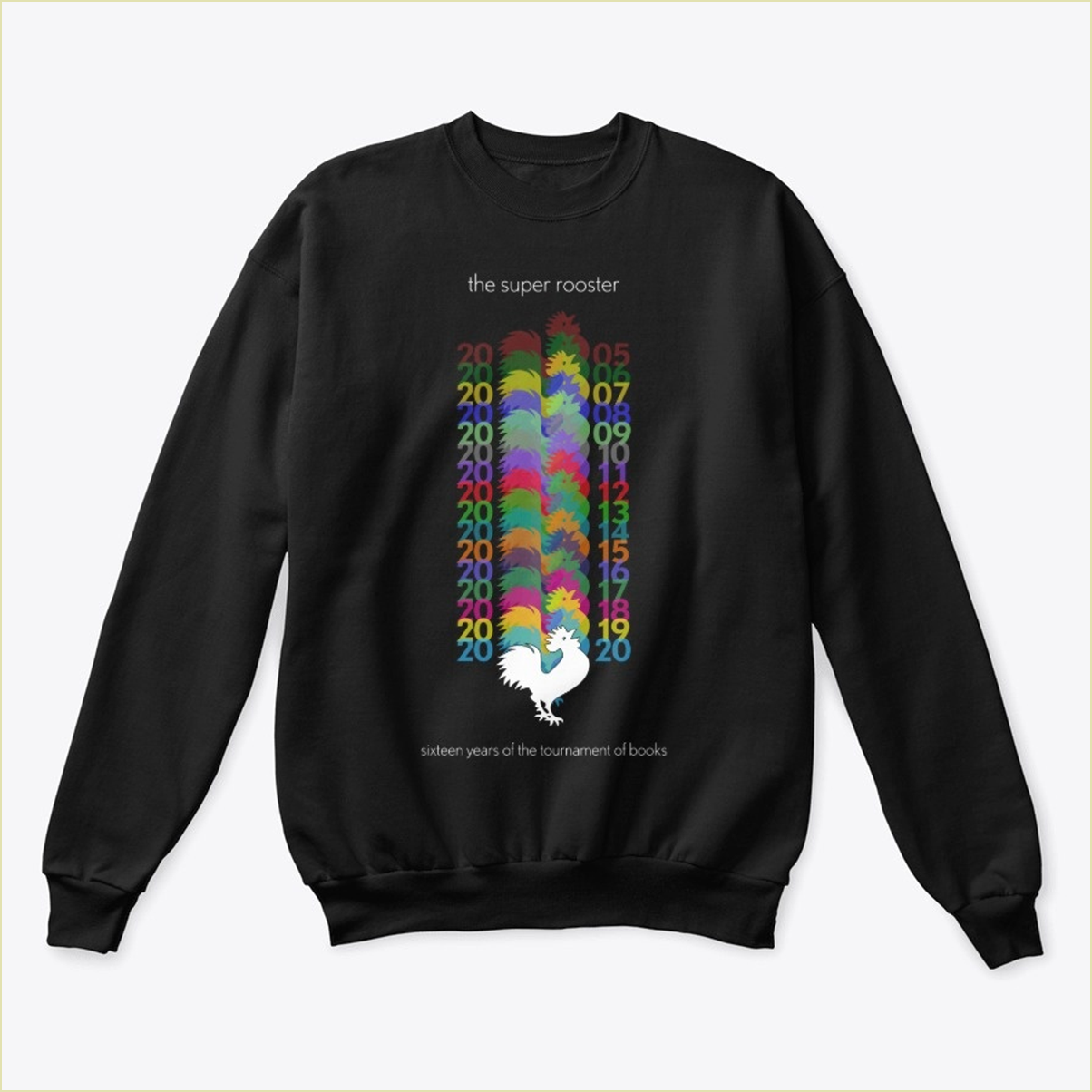-
Oct. 23, 2020
Quarterfinals
-
Colson Whitehead
The Underground Railroad
v.
Normal PeopleSally Rooney
-
Judged by
Jessa Crispin
Both of these books are for children. I don’t know if we’ve talked enough about what the popularity of YA books did to, you know, LITERATURE. But the easy moral lessons, the book that explains itself to you as you go along, the idea of being called to a cause that demands heroism, the predictable story arcs, and, perhaps most importantly, the books that read like film or TV series treatments—this all seems to have come from that time that we thought the world was going to end and what was going to save us was a bunch of plucky teens.
Basically, nothing good comes from trying to pander to children. Can’t they just read Stephen King? It was enough for us, it should have been enough for them, but no, we gave them Harry Potter and Katniss and whoever else—look, I didn’t actually read many of them, not being a child. But I did notice that since then, most of the novels that people like and talk about aren’t really for adults anymore.
Both of these books are fine. They’re easy to read and understand. You can read them while you still have your phone dinging beside you as a constant distraction and still understand what is happening. The Underground Railroad in particular seems to be referencing other books, dumbed down a little. Oh, Ridgeway is a bit like Javert here, isn’t he? I guess I will think that is an interesting characterization since I can easily trace his literary lineage to other, better books.
Normal People is very interested in people I am not very interested in, people who are doing well, trying to become content creators of some sort, people who are well educated. It’s like Gossip Girl but with more fucking and less happening. I feel like I kind of know these characters, they are like the urban women writers who used to have a TinyLetter about walking around New York City in a vintage trench coat feeling sad but pretty, but now that there is a global uprising and pandemic they don’t send out as many newsletters because at least they are self-aware enough to understand the optics. Optics are, after all, the only thing they truly understand.
Now I’m in an awkward position because I can’t actually remember which book I chose as the winner, it must have been an arbitrary choice. Because they’re both fine. Get them for your kid as they go off to college, and by “off” of course I mean to their Zoom class. Either one, they are both fine.
Match Commentary
By Jenny Colvin & Rosecrans Baldwin
Rosecrans Baldwin: So, this is going to be interesting. Today we’re joined by Jenny Colvin. Jenny, welcome! Please introduce yourself to the readers.
Jenny Colvin: Thank you so much for having me! I live in Greenville, SC, and I am an academic librarian and host of the Reading Envy podcast. I love talking to people about books they’ve read and loved, all genres and publication dates, and I try to read widely and diversely. I have been following the ToB for about seven years. A podcast episode about this past year’s Tournament I made with super-fan Jessica made me surprised at how many years I’ve had the Tournament in my life! I am almost positive that I first learned about it from the legendary Ruthiella. I never get tired of talking about these books. I’m the kind of reader who lives for the longlist. I also keep a detailed record of the books for each year’s Tournament, with color coding. I’m not even sure how much of my reading glee I should reveal here. It’s… a little much even for me.
Be honest, am I the most gleeful reader you’ve ever met, or is it typical for the ToB to bring out the most avid readers?
Rosecrans: I’d say you’re among the most gleeful. I think the ToB brings out a lot of emotions in readers, and I’m happy to see glee every day of the week; I have a feeling we’re going to see other emotions today. Let’s start here: Have you read either of these books?
Jenny: I first read The Underground Railroad three years ago, sandwiched between Underground Airlines by Ben H. Winters and Homegoing by Yaa Gyasi. I gave it three stars at the time, and felt I hadn’t waited long enough for the hype to die down. I just reread it this weekend and felt more invested in the characters. I really feel the violence of the world(s) surrounding them and all the impossible decisions—what if the next place is worse than the place I flee, knowing I can’t go back? Am I as safe as is possible, or is there a place I can be free? I like when a reread or a discussion of a book increases my empathy for the characters. I initially conflicted with Exit West by Mohsin Hamid for a similar reason—I was convinced the [silly] doors took me as the reader out of the reality of the situation, until my friend who is herself an immigrant explained it to me from her perspective, that it’s not so much the journey itself but the “not knowing” that is the deeper truth of the experience. That really clicked in this reading of The Underground Railroad too. I was caught up in the journey the first time I read it, but that isn’t the point.
Rosecrans: Great. And Normal People?
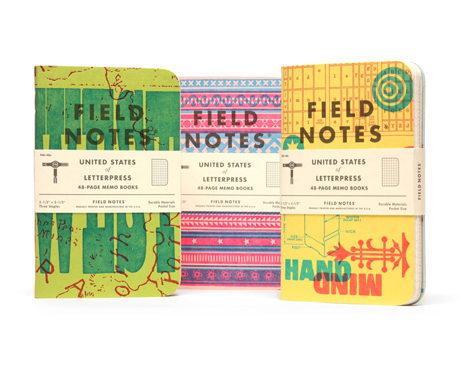 Field Notes® Limited Edition for the Fall of 2020 is the “United States of Letterpress,” which features the work of nine independent letterpress shops from across America. This series demonstrates a wide array of craftsmanship, ingenuity, and love for the age-old and tactile process of letterpress printing. Check the the short documentary film too.
Field Notes® Limited Edition for the Fall of 2020 is the “United States of Letterpress,” which features the work of nine independent letterpress shops from across America. This series demonstrates a wide array of craftsmanship, ingenuity, and love for the age-old and tactile process of letterpress printing. Check the the short documentary film too.Jenny: I had an advanced reader copy in 2018 and stayed up late the night before the Booker Prize shortlist was announced that year, in case it was included. Sadly it was not, but I was in love. I’m such a sucker for a relationship novel, particularly one with good dialogue, and it hit the perfect sweet spot. I’ve been pretty vocal about my love for it ever since, including defending it on Goodreads and in the ToB discussions. Actually I can’t believe this novel won the Tournament earlier this year because it feels like five years ago.
Rosecrans: We’re in a pandemic! Time is a construct!
Jenny: I haven’t reread Normal People yet, nor have I read Rooney’s previous book—I’m in this weird place where I loved the first experience so much I need to wait until I read her again. Do you have any authors you’ve loved too much to read the rest of their works?
Rosecrans: Not that I can think of. I do have an issue where I won’t reread a novel to avoid tainting my first or second impression, I just don’t want to ruin it.
Let’s get to today’s judgment. What do you make of Judge Crispin’s decision?
Jenny: Today’s decision, well honestly, I’m a bit insulted on behalf of everyone who loves the Tournament. One thing I’ve really noticed among the Commentariat is their appreciation of the thoughtfulness of the judgments during the Super Rooster, and I am not certain they—or anyone who follows the ToB—will have that perspective today! These two books are acclaimed and well loved; I feel they deserved more consideration. Is this the first time a judge has made almost a non-judgment between two books?
Rosecrans: Oddly enough, it’s a semi-rich tradition. Whether it comes down to a coin toss, or the cover art, or throwing the books off a porch. Let’s step back for a moment. Reading a novel is complicated, intellectual, emotional, instinctive. We encourage judges to follow their gut and be as honest and opinionated as possible with us about their experience, and I think Judge Crispin is doing that here, whether or not readers will agree with her. I will say that Crispin is one of my favorite people to read or listen to when it comes to what she thinks about books and art. For example, her review (pretty much a total pan, fwiw) of Normal People’s TV adaptation:
The desire to tell an old story in a new way only really works if you actually have something new to say. And bringing the power imbalances between the classes or between the genders to the surface of the story only counts as new if you assume that romance novelists throughout time, and their audiences, were completely ignorant about these dynamics. At least when these same stories appear in romance novels, chick lit, and romcoms, there are usually some good jokes, and the S&M is more stimulating than just lying there limp while your hands are bound.
Jenny: In 2017, I went to see Viet Thanh Nguyen speak at the Clemson Literary Festival, shortly after his novel The Sympathizer [ToB 2016] won the Pulitzer Prize. I remember him discussing how he is asked frequently about his politically charged writing. He said something along the lines of how not writing about politics is a marker of privilege and willful ignorance, and that he expected to see more writers moving in a political direction. I think it is astounding to expect literature not to make commentary on social justice issues, such as the continuing struggle of Black people in the United States, considering where we are. I think some of the questions raised in The Underground Railroad—who defines your humanity, what will you trade for your life, which side are you on—are even more relevant now than when he wrote the novel. Or, acknowledging my own willful ignorance, maybe I am more in tune with it now. Regardless, I find the book more compelling now than I did when I first read it.
I also see Normal People in a different light from this side of 2020; the entire novel could be about loneliness and isolation. Rooney captures the nuances of miscommunication, and I love that feeling of everything hanging in a balance, like the characters are just barely missing each other. I will take that kind of drama over a thriller any day. What is more thrilling than the human heart?
Rosecrans: The judge slides both books in the Young Adult drawer and slams that drawer shut hard. And I imagine readers who don’t consider either book YA will feel a little upset or gaslit, if not scolded. (Scolding adults for reading YA is nothing new.) How the genre applies in either case, I’m just not convinced. I mean, I guess Normal People has aspects that are YA-adjacent, but to say The Underground Railroad is intended for younger audiences due to—I’m grabbing for straws here—Cora’s age and her ways of escaping danger, or the more adventurous aspects of the story’s plotting, or the villain archetype of Ridgeway, seems not to see many of the novel’s substantial achievements. I just wish the judge had given us more to chew on.
Jenny: I actually felt she was confusing YA with “non-literary,” but to me, no, neither of these novels are YA. I sometimes see people want to slap “new adult” on Normal People, but I’ve never heard that criticism of The Underground Railroad. If the characters in The Underground Railroad were all teenagers solving the riddled problems of a slavery-based society, then maybe it could be YA, but that just isn’t what we find.
Rosecrans: Crispin regrets “the book that explains itself to you as you go along, the idea of being called to a cause that demands heroism, the predictable story arcs, and, perhaps most importantly, the books that read like film or TV series treatments.” I see aspects of her list in both novels, and some of the things she lists are things I also dislike in books generally—but, in my personal read, not in these two books, at least not enough to redo their shelving instructions.
Jenny: Why would we only want to read about teens saving the world? I’m 42, I’m too old to read about first kisses and teenage angst. Our world has serious problems, why wouldn’t it be the place for serious literature to address them?
Rosecrans: So, Normal People moves into the next round without much of a ringing endorsement. Seeing how, in the judge’s assessment, it sounds like she found the characters to be uninteresting not only for lacking gravitas but simple personhood outside of a sort of urban narcissism, a concern for surfaces and style. Here’s a question: Do you ever love books despite disliking the people inside them?
Jenny: In my experience, I will put aside a book where the author is writing unlikeable characters to prove she can, but when characters are flawed and make decisions that come out of those flaws, I am all in! The bigger question to me is, will people continue to admit they love a book that others have equated with the narcissism of youth? Do you have any books you love despite them falling out of favor?
Rosecrans: Nope, my taste is perfect.
Jenny: I just wish our judge had said Normal People was not to her taste rather than shoving it in the drawer.
Rosecrans: If you had been in her shoes, how would you have decided?
Jenny: My own criteria will always be content longevity, writing that pulls me into the story, and emotional resonance. Which book will I read 10 years from now and still feel it matters? I’m not sure I have enough distance from Normal People to have that 10-year view yet.
Rosecrans: Fair enough. Final question: This judgment feels influenced by the current moment, floating somewhere in the four dimensions of global pandemic, racial injustice, the presidential election, and the unknown. Is the context of your life influencing your take on books right now? Is it ever not?
Jenny: It would be impossible not to bring my whole pandemic self to my reading life. I try to honor my sometimes finicky reading moods. Sometimes that means I need to give myself permission to put aside a book that isn’t working for me, and sometimes it means immersing into a tiny book about watching a snail. I no longer think shutting the world out is an effective strategy, so I’m trying to use reading as a way to engage with it in ways I find palatable.
Rosecrans: I hear that. For me, outside of work, it’s swabbing cheeks, gazing at stuff (my navel, mostly), binging space shows at night, and drinking mezcal. Time is a construct, but tequila is empirical.
Our great thanks to Jenny for talking to us today. Please join us back here on Monday for the start of the semifinals with Cloud Atlas, A Mercy, and ToB Judge Myriam Gurba. Have a good weekend.
New Super Rooster merch is now available at the TMN Store. As a reminder, Sustaining Members receive 50 percent off everything in our store. To find out why we’re asking for your support and how you can become a Sustaining Member, please visit our Membership page. Thank you.
Welcome to the Commentariat
Population: You
To keep our comments section as inclusive as possible for the book-loving public, please follow the guidelines below. We reserve the right to delete inappropriate or abusive comments, such as ad hominem attacks. We ban users who repeatedly post inappropriate comments.
- Criticize ideas, not people. Divisiveness can be a result of debates over things we truly care about; err on the side of being generous. Let’s talk and debate and gnash our book-chewing teeth with love and respect for the Rooster community, judges, authors, commentators, and commenters alike.
- If you’re uninterested in a line of discussion from an individual user, you can privately block them within Disqus to hide their comments (though they’ll still see your posts).
- While it’s not required, you can use the Disqus
tag to hide book details that may spoil the reading experience for others, e.g., “ Dumbledore dies .” - We all feel passionately about fiction, but “you’re an idiot if you loved/hated this book that I hated/loved” isn't an argument—it’s just rude. Take a breath.
